The Baby Train
The Baby Train
Other books by Jan Harold Brunvand
ENCYCLOPEDIA OF URBAN LEGENDS
TOO GOOD TO BE TRUE
CURSES! BROILED AGAIN!
THE MEXICAN PET
THE CHOKING DOBERMAN
THE VANISHING HITCHHIKER
THE STUDY OF AMERICAN FOLKLORE
READINGS IN AMERICAN FOLKLORE
The Baby Train
And Other Lusty Urban Legends
JAN HAROLD BRUNVAND
UNIVERSITY OF UTAH
W W NORTON & COMPANY
New YorkLondon
Copyright 1993 by Jan Harold Brunvand
All rights reserved
Printed in the United States of America
Excerpt from Another Urban Legend, lyrics by Bob Kanefsky
(a parody of Ferryman, lyrics by Mercedes Lackey
to tune by Leslie Fish), reprinted with permission from
Songworm: Segment Two. Lyrics 1989
by Firebird Arts and Music, Inc., P.O. Box 14785,
Portland, OR 97214, (800) 7520494.
Bedbug letter reprinted by permission, Princeton Alumni Weekly.
First published as a Norton paperback 1994
The text of this book is composed in 11/13 Baskerville,
with the display set in Isbell Medium Italic.
Composition and manufacturing by the Haddon Craftsmen, Inc.
Library of Congress Cataloging-in-Publication Data
Brunvand, Jan Harold.
The baby train and other lusty urban legends /Jan Harold Brunvand.
p. cm.
Includes index.1.
Urban folkloreUnited States. 2. LegendsUnited States.
I. Title. II. Title: Baby train.
GR105.B686 1993
398.2091732dc20 929616
ISBN 978-0-393-31208-9
W. W. Norton & Company, Inc.
500 Fifth Avenue, New York, N.Y. 10110
www.wwnorton.com
W. W. Norton & Company Ltd.
Castle House, 75/76 Wells Street, London WIT 3QT
67890
 This book is printed on recycled paper
This book is printed on recycled paper
Theres a story that Reagan loves to tell about a black welfare woman in Chicago who lives lavishly and supposedly collects something like a hundred and three welfare checks under different names. Now this anecdote has been checked by a number of different people, including Joe Califano, who has written to the president on three different occasions to tell him that the story is mythical and that this woman doesnt exist. The president knows the anecdote isnt true, but he continues to use it.
There are a hundred urban legends just like it, such as the one about the fat lady getting out of a taxi and buying liquor with her food stamps.
from Man of the House: The Life and Political Memoirs of Speaker Tip ONeill. With William Novak. (New York: Random House, 1987), 34748. |
CONTENTS


The legend studies in this booklike those in my last one, Curses! Broiled Again! (1989)were first published in my twice-weekly newspaper column Urban Legends, then revised and expanded, based on further research plus readers responses. Although folklore, by definition, requires oral tradition to survive, much of the material for my studies in recent years has come to me in the form of letters and clippings and computer bulletin-board entries that echo the word-of-mouth careers of contemporary legends. But I always keep my ears open, and not long ago I had an experience that is unique in my three decades as a folklorist: I witnessed the genesis of a legend firsthand.
The scene was Texas, where I had traveled to attend a scholarly meeting about contemporary legends. Half a dozen of us folklorists were seated around a table at a Chinese restaurant, discussing what to order. We were wavering between two family-style alternatives, which would allow us to sample several dishes.
The attentive Chinese waitress was taking drink orders. Since we were all from different parts of the country, she was having a little difficulty understanding our various regional dialects.
The waitress had just gotten the first four orders down and was waiting for the man on my right to choose when he stated his opinion on the food order. He said, Lets go back to plan one.
I echoed that, saying OK, plan one, and then we turned our attention back to ordering our drinks, but the waitress had already left.
A few minutes later she returned with a tray of six drinks: an iced tea, a Coke, two cocktailsand two glasses of plum wine. Plum wine? Who ordered that? The waitress smiled and insisted that we had, and so the two of us without drinks accepted the wine, shrugged, and raised our glasses in a toast.
In time one of the other folklorists figured it out: Plan one had sounded like plum wine to the waitress.
Since we were all folklorists, we appreciated this apt illustration of how a misunderstood word or phrase may lead to changes in traditional texts.
Later in the evening I heard the first variation of the story. But the teller, a member of our dinner party, messed it up by saying Plan A, which destroyed the punchline. Some can tell em, some cant.
The storytellers mistake got a big laugh, though, when he had to back up and correct himself, and by the next morning people at the meeting were telling the new story about how the guy had garbled the telling of his story about the Chinese waitress. Pretty soon just the phrases Plan one or Plan A were enough to bring a chuckle, often followed by other anecdotes we knew about misunderstood words leading to comical results.
It started to sound like a set of Chinese boxes at that point, and I wont be surprised if at some subsequent meeting a folklorist gives a paper analyzing this whole thing.
A similar dining-out storyalso set in an ethnic restaurant and turning on a misunderstanding of food-related termswas told to me by a colleague. This man had heard it from his mother who said it had actually happened. But like most urban legends it seemed too good to be true.
My friends mother had heard about two Texans visiting New York City. Every morning for a week they went into one of the famous delicatessens on Sixth Avenue, wearing cowboy boots and ten-gallon hats, and ordered lox and bagels.
At the end of the week, the owner came over to their table and said that hed noticed them eating lox and bagels every morning. He said he was happy they were eating at his place, but did they like lox and bagels all that much?
Sure, we like em a lot, one of the Texans answered. But can you tell us, which is the lox and which is the bagels?
Reminds me of the time when my daughter held up a cookie she was eating and asked, Daddy, which is the fig and which is the newton?
Consider, for a moment, how legends evolveor, in some cases, devolve.
Sometimes we folklorists talk about stories as if theyre alive. We say an urban legend like The Vanishing Hitchhiker was born in a particular era, spread, changed, and eventually may die out. I find myself speaking of The Choking Doberman as having a life of its own, or of The Killer in the Backseat having mutated to fit a new environment.
I remembered this when I read biologist Richard Dawkins book about evolution, The Selfish Gene (Oxford University Press, 1976). Dawkins alluded to folklore-style changes in explaining how species evolve.
In his view, errors in copying are inevitable, and texts always devolvethat is, get worse as they changewhile species sometimes evolve (that is, successfully adapt). But I doubt the first axiom, since some urban legends get better and some get worse as theyre told. It depends upon the skill of the storyteller.
Next page
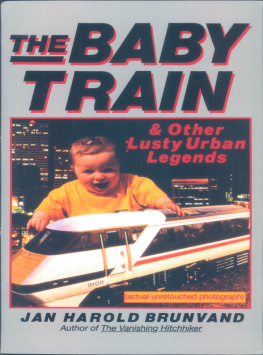

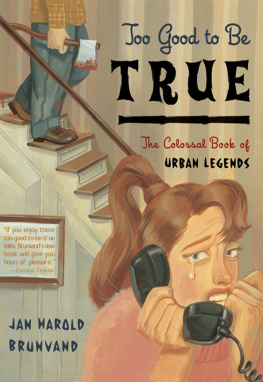
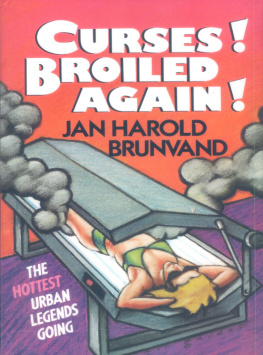
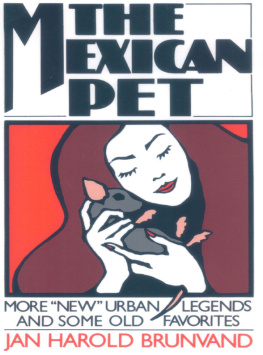
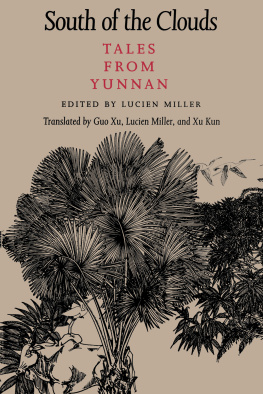
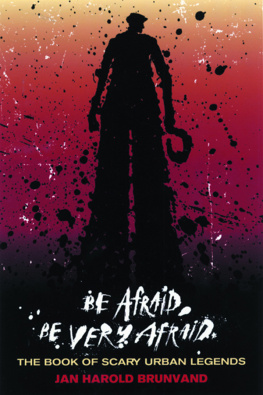
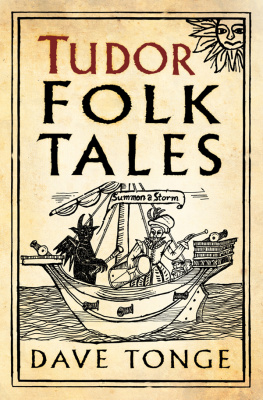

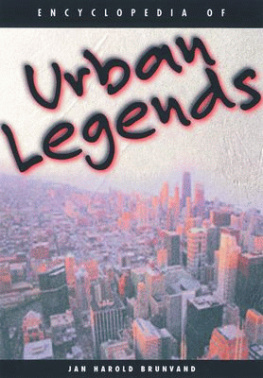
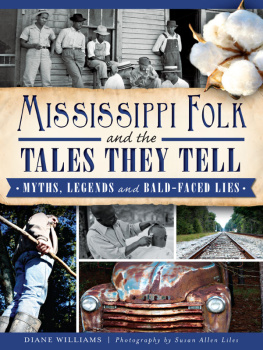
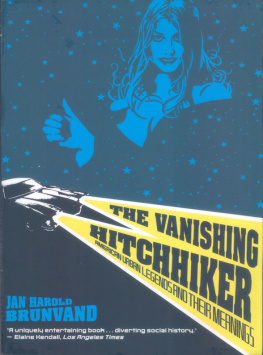

 This book is printed on recycled paper
This book is printed on recycled paper